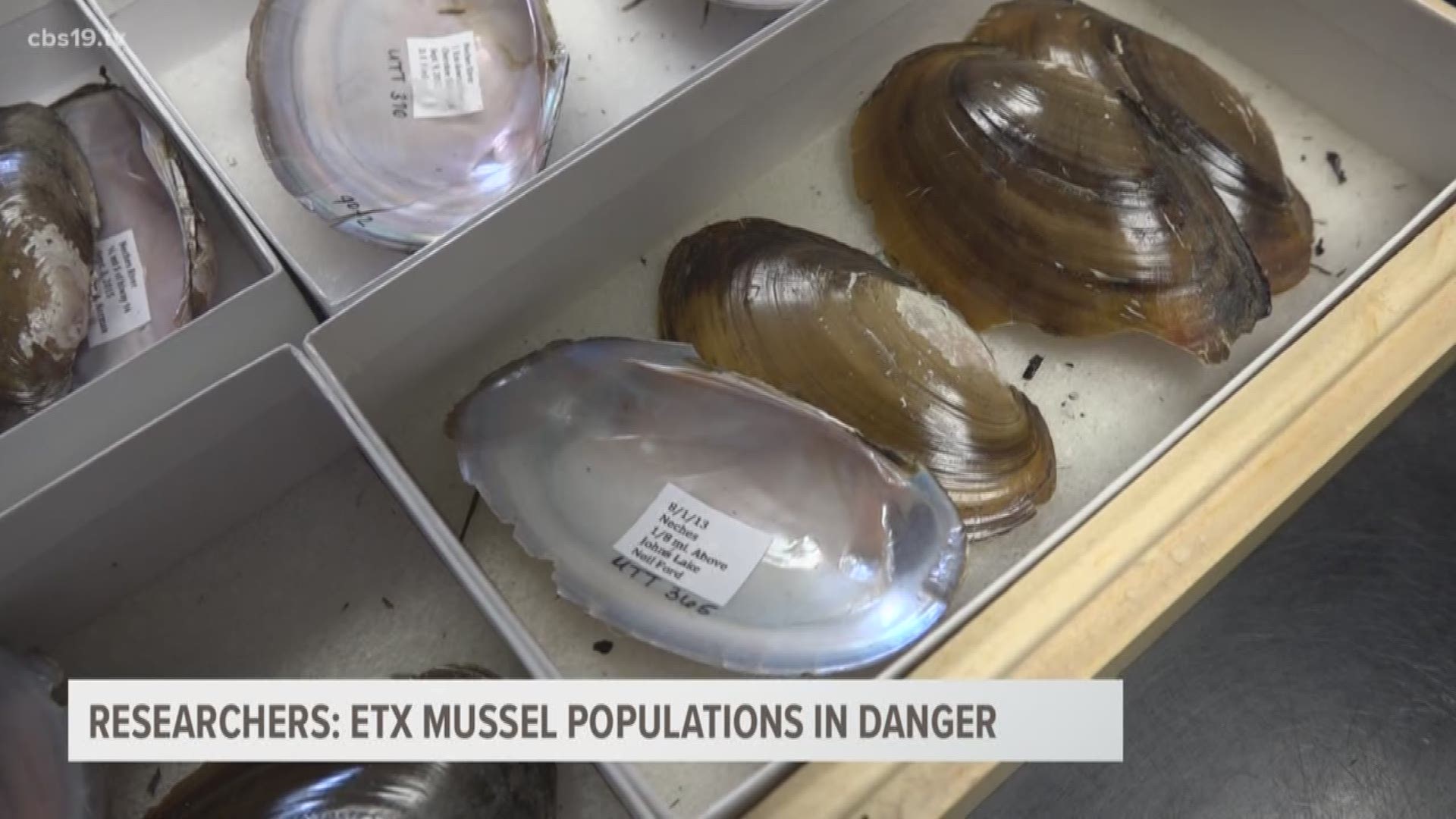TYLER, Texas — Dr. Lance Williams is head of the biology department at UT Tyler. He and his team of researchers have discovered a pressing problem in East Texas fresh waterways.
"This one's the Texas heel splitter," Williams said as he opened a case of shells. "This is probably the rarest muscle that we have in East Texas, we've only found approximately 40 specimens out of 34,000 we've collected over the last 14 years."
Freshwater mussel populations in East Texas are declining. Williams and his team say this is largely due to rising temperatures.
"Here is what we forecast the suitable habitat will be for the Texas Pigtoe in the year 2050," research team member Dr. Josh Banta pointed out on a computerized model. "So again, warmer colors indicate more suitable habitat. There are no warmer colors in 2050."
Williams says the future does not look good for East Texas mussels.
"So we know, under climate change forecasts, it does it looks pretty grim for the muscles. We know it's only going to take a few degrees in [water] temperature before you start to see a major die-off of some of the species," Williams said.
The team put their predictions to the test last summer, to get a practical example of the issue on the books.
"Last summer we did an experiment in these artificial streams," Williams said as he walked through a lab with massive tanks filled with substrate. "We had to pick carefully which species we did, so it didn't harm the population."
The researchers selected the Texas Pig Toe, the least endangered of the species that reside in East Texas.
"We started at 20 degrees [Celsius], and we went up in five-degree increments," Williams explained. "So at 30 degrees [Celsius], which is about what our rivers get to, right now the fatality rate was around 20%."
"This particular species that we used, which was the Texas Pig Toe, when we increased the temperature five degrees to 35 degrees Celsius, 100% of the mussels die," Williams said.
So how long do we have until East Texas waterways become a boiling pot for these mussels? Williams says, compared to previous points in history, not long.
"We're seeing with climate change, we're looking at 50 years temperatures changing that fast, not thousands. That's why it's so alarming,” Williams said.
A mass die-off of East Texas mussels would directly impact the people that live in the region.
"We like to think of them as the liver of our rivers," Williams said. "So they filter a lot of toxins and a lot of pollutants out of the water. So if they disappear, all the filtering that they do, waste, nitrogen, things like that, that are in the water, there won't be another organism that can replace that function."
The waterways that would suffer pollution spikes in the absence of mussels are the ones East Texas relies on for drinking water.
"If you think about it, every river connects to a reservoir somewhere, every reservoir is where we get our drinking water. So from a human standpoint, we absolutely depend on clean water in our rivers,” Williams said.
Williams says the purpose of this research is to encourage solutions to the problems our planet is facing.
"[Climate change is] a hard problem to solve," Williams said. "But it's one that scientists are we're working towards trying to understand what effects it's going to have so that we can sound the alarm and educate people. "So they know if we don't make some changes, this is what's going to happen to our ecosystems."

